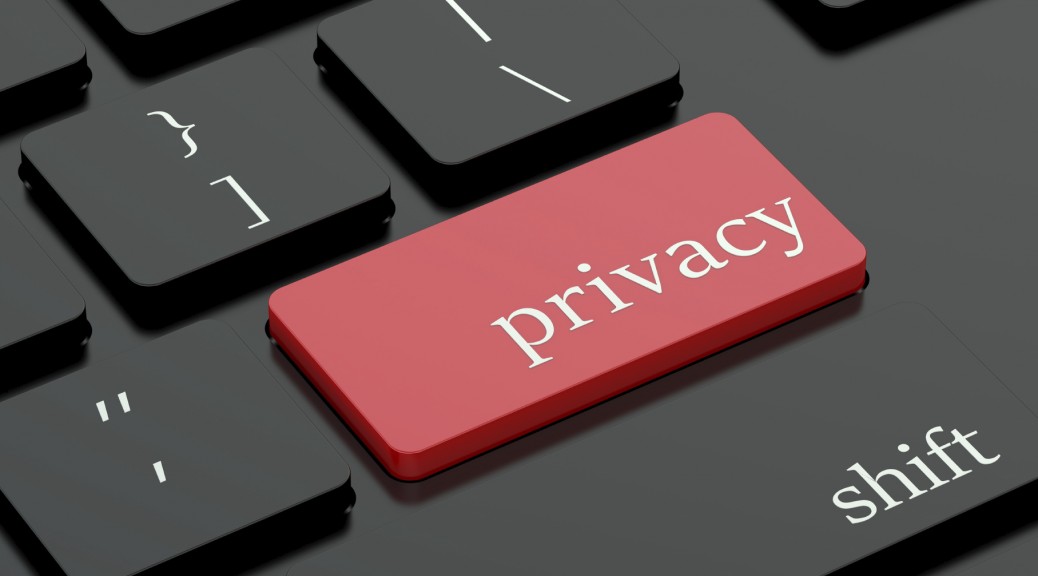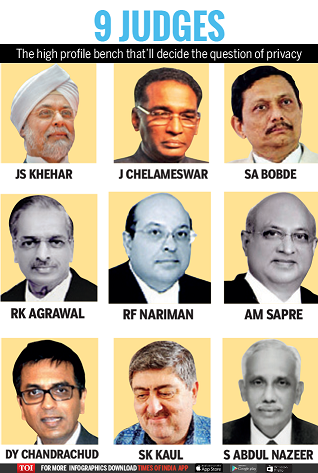Right to Privacy
August 24, 2017 | Expert Insights

The Supreme Court of India has ruled that the right to privacy is “intrinsic to life and liberty.”
A nine-judge Constitution bench made the historic ruling that now states that the right to privacy is protected under the fundamental freedoms guaranteed by the Indian Constitution.
Background
There have been a number of petitions that have been filed after the introduction of the Aadhaar card by the Indian government. The Aadhaar card is a unique identification number that is assigned to the citizens of India. The database links a person’s ID number with their iris scans and fingerprints. There are over a billion who have been given Aadhaar cards. The government has made it mandatory to link the Aadhaar card with a number of necessary services such as banking and social development schemes. Critics have argued that this infringes on their privacy.
An eight judge bench in 1954 and a six judge bench in 1961 had already ruled that privacy was not protected under the constitution. The current ruling essentially overrules them completely.
Analysis
The nine judges part of the bench were: Chief Justice Khehar, Justices J. Chelameswar, S.A. Bobde, R.K. Agrawal, Rohinton F. Nariman, Abhay Manohar Sapre, D.Y. Chandrachud and Sanjay Kishan Kaul. The decision was unanimous.

The Union Government had argued that that privacy is not a common law right.
However, this ruling does not directly affect the status of the Aadhaar card. The bench noted that this wasn’t a comment on the government initiative. However, the decision pending on Aadhaar card will be made by a separate and smaller bench of the Supreme Court at a later date. The government is likely to change its argument based on today’s ruling.
This ruling is also likely to have a significant impact on civil rights in India. In 2013, the apex court had upheld the controversial Section 377 of the IPC. It criminalizes sexual activities "against the order of nature" and has been used in the past to arrest members of the LGBTQ community. There is currently a writ petition challenging Section 377 citing that it violates the privacy of citizens. This writ is still pending.
This will also have an impact on an ongoing case against messaging platform, WhatsApp. There is a petition that challenges whether WhatsApp has the right to share the information of its users with social media giant, Facebook.
Chief Justice Khehar said, “If what you have been asked to disclose bothers you, then it infringes your right of privacy. Voices concern over possible misuse of personal information in public domain.”
Assessment
Our assessment is that this historic ruling will have a massive impact on the lives of Indian citizens for years to come.








Comments